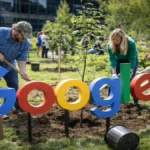The Internet of Things, or IoT, presents a wide range of opportunities across several domains of life, ranging from personal life management to business and industry. Even more so, the Internet of Things has a lot of promise when it comes to how it will affect senior citizens’ lives. New software and technology for the elderly enable us to think of several ways that seniors can benefit from these various technologies in their daily routines. As we get older, we may experience negative effects on our health, mobility issues, and memory loss related to dates and doctor’s appointments. These obstacles are lessened for older people with the use of internet-enabled gadgets and technology, improving their quality of life for themselves and their loved ones. The Internet of Things could improve seniors’ lives in various ways. Here are some innovative IoT devices for elderly people.
Safety
It’s critical for older folks to feel comfortable in their homes, especially if they’re living alone. Answering a knock at the door may be difficult for people with mobility issues because many feel compelled to hurry when they hear the doorbell, which increases the risk of falling. It can also be intimidating to answer the door to a stranger when you feel physically vulnerable, especially if you are unsure of who is on the other side. But for seniors, in this regard, technological innovations like Ring video doorbells have been tremendously beneficial. When a video doorbell connects to a home Wi-Fi system, the user can see who is at the door using an app on their phone and can even use the speaker system to interact with the visitor without the need to open the door. In other situations, people with mobility issues can arm their home security systems from their phones or even call for assistance when necessary, thanks to smart alarm systems that are equipped with applications.
Well-being and Health
The Internet of Things presents countless opportunities for improvements in healthcare. Advances in telehealth have made it possible for older adults to communicate with their doctors via smartphones or tablets and, in certain situations, even receive medical diagnoses instead of needing to physically visit the doctor for every concern. To follow up on a patient, for instance, a cardiologist can send an Internet-enabled cardiac monitoring device that the patient can use at home and that will communicate data to the doctor online without the patient needing to visit the office. Additionally, there are automated pill dispensers that can pre-sort medications into the appropriate dosage for each and remind elderly people who are prone to forgetting to take their medications at different times of the day.
But smart watches might be the biggest development in health technology to date. Devices like the Apple Watch offer numerous features and apps designed to help you monitor your health. The more current models of the Apple Watch include blood oxygen sensors and fall detection, in addition to a basic EKG and heart monitoring system that can identify irregular heartbeats and atrial fibrillation. The wearer will hear a haptic alert from the gadget if it senses a hard fall, and if they don’t respond, it will automatically contact emergency services. In many instances, the Apple Watch has proven to be crucial in saving the lives of elderly patients who visited the emergency department but were unaware that they had an irregular heartbeat. The EKG single lead on the watch enables the user to take a reading and send the PDF to their doctor via a medical app like MyChart.
Digital Assistants
Older folks have greatly benefited from gadgets like Internet-enabled assistants like Siri and Alexa as a form of aged care solutions. These gadgets have the ability to notify users aloud of impending appointments, prescription schedules, and incoming messages like texts or calls. Staff in certain nursing homes utilized Echo Dots to offer residents music, audiobooks read aloud to them, and weather alerts. Studies have shown that these activities can enhance and uplift residents’ moods and further quality elderly care. These devices’ audio reminders are quite beneficial for people who have memory problems.
Security
Seniors’ safety is a top priority. Those who experience memory loss or mobility issues that make it difficult for them to perform daily tasks are at serious risk of falling or getting into dangerous situations. There are smart watches available on the market for seniors with memory issues that enable a loved one or caregiver to have continuous GPS access to the senior, particularly if they have a tendency to wander off and become lost. Other technologies can be very helpful in locating a senior in a specific building or informing emergency personnel of a possible developing crisis. Examples of this technology are Internet-enabled smoke and motion detectors and home fall detection devices installed in bathrooms.
Seniors and the IoT
While by no means exhaustive, this list illustrates the myriad ways in which the Internet of Things can improve the lives of senior citizens who may encounter challenging circumstances on a daily basis. The aging of our population demonstrates that this will not always be the case, something most of us take for granted. Older adults cannot always take care of themselves, get around their homes, go where they need to, or interact with healthcare providers in person. Motion sensors for elderly care and smart home elderly care allow seniors to retain some independence for a few years more. Fortunately, older folks may find these obstacles less problematic because of technology and the IoT. As technology continues to develop, older people have more options for solutions to their age-related issues that might otherwise prevent them from living independently. Learn more about IoT healthcare solutions for your loved one today.











